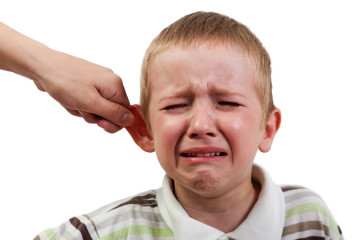The Influence of Early Experiences on Future Relationships

By
The challenging fabric of adult relationships, with its nuances of reliability, interaction, and intimacy, starts in the early stages of childhood. These young years, filled with development and discovery, invisibly shape the grown-ups we become, impacting how we behave, connect, and create ties with one another. Our initial interactions, from the comforts of a caregiver’s embrace to the confrontations of our first friendships, become deeply imprinted in our brain, functioning as inconstant guides in our adult quest for love, understanding, and connection. The following paper addresses the tremendous impact of young life experiences on one’s adult relationships, tracing the threads of earlier attachments, surrounding factors, and social learnings to clarify how they establish our relational blueprints. Considering this deeply complex interplay reveals not just the causes of our relational dynamics, but also routes for cultivating better, more meaningful connections at all stages of life.
Attachment Theory and Adult Relationships
Attachment theory, a fundamental component of psychological research, holds that the form of our earliest bonds-whether secure, anxious, or avoidant-has a significant impact on the way we interact with others as adults. Strong bonds in childhood generate feelings of security and self-worth, which leads to adult relationships highlighted by respect for each other, compassion, and open conversation. In contrast, insecure attachments might emerge in adult relationships as fear of abandonment, trusting issues, or an obsessive demand for independence.
The Environmental Impact
The context in which a youngster grows up has additional effects on their relationships as adults. Children reared in compassionate supporting surroundings have a higher likelihood of developing excellent interpersonal skills and a healthy self-image. They are more capable of communicating their feelings, resolve problems, and search out healthy, supportive connections. On the other hand, people who suffered from abuse, abandonment, or instability might have difficulty with self-esteem, managing disagreements, and behavioral management, all of which can disrupt adult relationships.
Self-esteem and Relationship Dynamics:
Early experiences have enormous consequences in self-esteem, which in fact affects interpersonal dynamics. Positive reinforcement, praise and appreciation of uniqueness promote high self-worth, giving people trust as well as resilience in relationships. Criticism, neglect, and comparison, on the other side, can cause poor self-esteem, making individuals more likely to continue living in toxic relationships out of a sense of worthlessness.
Social Learning and Relationships
Social learning has an extremely important function in developing connections between adults. Children notice and absorb the relationships that they see amongst their parents or guardians and in the community at large. These observations create the foundation for their notion of love, support, and conflict. Positive role models can encourage healthy relationship habits, but negative encounters can prolong dysfunctional patterns.
Beyond the Home: Education and Socialization
Besides home life, social and educational interactions have an important role in the development of relational skills. School environments, social interactions, and extracurricular pastimes allow youngsters to develop empathy, collaboration, and negotiating skills. These situations require youngsters to adapt, discuss, and comprehend multiple viewpoints, establishing the groundwork for more complex relationships in the future.
Enriching Childhood Experiences
Childhood experiences can foster healthy relationships in the future. Team sports teach teamwork, mutual support, and handling defeat gracefully. Artistic activities like music, drawing, drama, and paint by numbers workshops with various kits like florence paint by numbers offer creativity, focus, relaxation, and broaden cultural horizons and foster achievement and patience. Family-oriented activities like game nights, outdoor adventures, and shared hobbies encourage bonding, communication, and appreciation of shared experiences. These activities not only provide immediate joy and enrichment but also sow the seeds for relational competence and fulfillment in adult life.
Coping Mechanisms and Emotional Regulation:
Conditions in which children are trained to deal with stress, disappointment, and failure influence their emotional control in adulthood. Healthy coping techniques, such as soliciting assistance or problem-solving, help to improve emotional maturity and maintain healthy relationships. Additionally, inappropriate ways of coping, such as avoidance or aggressiveness, can break interpersonal harmony and cause conflict.
The Importance of Self-awareness and Growth:
Self-awareness is essential for negotiating the difficulties of relationships shaped by early experiences. Individuals may actively strive toward betterment and advancement by revealing their formative years and recognizing how they pertain to their present relationships. This path of self-discovery is about more than just mending old scars; it’s also about seizing the chance to constructively mold future connections.
Professional Relationships and Childhood Foundations
Childhood experiences have a permanent influence on adult professional relationships. Early socialization teaches capabilities like teamwork, communication, and handling conflicts, which are extremely useful in working environments. They help people manage the complexity of collaborative work, management, and professional interactions with ease and confidence.
In simple terms, the overlapping array of earlier interactions is completely related to the quality and nature of adult relationships. These critically important years are crucial for establishing the physiological and relational skills required to navigate perplexing social contexts later in life. By prioritizing loving, supporting, and enriching settings, we may provide children with the assets needed to form healthy, long-lasting connections. It is within our community’s capacity to have a beneficial effect on the upcoming generation, instilling resilience, empathy, and understanding that will serve them through adulthood. Realizing and fostering this innate ability is not just an investment in people’s futures, but also a step toward building a more caring, connected society.
written By Isaac Peterson Jr Writer Enhance your kids kids growth and upcoming interactions by immersing in artistic endeavors such as california paint by numbers, music, and outdoor adventures.
sooperarticles.com







No Comment